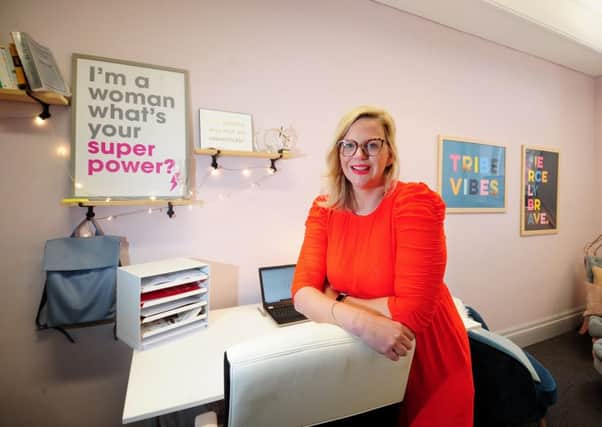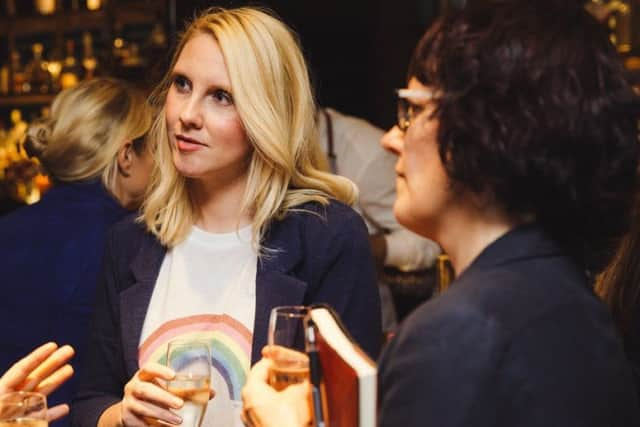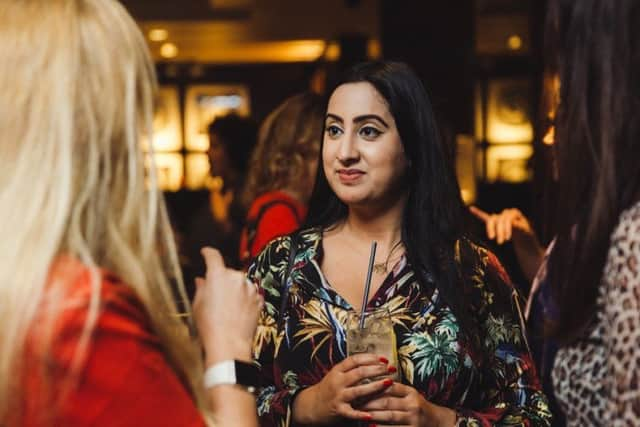The ‘tribes’ helping women who work for themselves to feel less lonely


Girl Tribe Gang, which is headquartered in Leeds, was the brainchild of former NHS strategist Catherine Asta Labbett, who set it up while running her own psychotherapy business from her home in Ilkley when she was on maternity leave three years ago.
It “very quickly” struck her how isolating working from home could be - and she thought of the perfect way to tackle it - a new network specifically aimed at women who work for themselves, “are spinning a side-hustle” or are aspiring to quit the nine to five.
Advertisement
Hide AdAdvertisement
Hide Ad“When you’ve come from the corporate world and start working for yourself it can be daunting,” Mrs Labbett, 39, said. “The majority of women who come to Girl Tribe Gang are working from their kitchen tables - sometimes running multi-million pound businesses. It’s hugely isolating and lonely - and no one seemed to be championing these women.


“I came from the NHS, which is a massive organisation, to start up on my own. I started going to networking events, which were mainly during the day, when I needed to be working full-time, and they really weren’t for me.”
After fine-tuning her idea, the first ‘Tribe’ launched in Ilkley in early 2017, and has now grown to 70 members. Each Tribe meets up monthly, on an evening, for two hours. The first hour is a panel discussion aimed at “sharing knowledge”, with the second hour described as “relaxed connecting” - without any sticky label name badges or awkward introductions in sight.
There are now seven Tribes in Yorkshire, from Sheffield to York, and with 20 about to launch across the UK, the total is soon to approach 60, and the first international Tribe about to launch in the Netherlands.
Advertisement
Hide AdAdvertisement
Hide AdGirl Tribe Gang’s headquarters have since moved from Mrs Labbett’s kitchen table to the Wizu coworking space in Leeds city centre, where she also runs her psychotherapy business.


It has become popular with the Leeds’ Tribe’s members as a base for them too.
The mother-of-four said: “It’s just brilliant if you’re a woman who is just starting out to have something where you can co-work for as little as £15 a day.”
Girl Tribe Gang’s own research has shown that 90 per cent of the women it surveyed reported feeling exhausted, and 80 per cent felt they were suffering from stress.
Advertisement
Hide AdAdvertisement
Hide Ad“One of the main reasons for this was loneliness and isolation,” Mrs Labbett said.”Of women who work for themselves, four out of 10 felt lonely or isolated.”


The Yorkshire Post has been campaigning to highlight the issue of loneliness since 2014, when it launched the Loneliness: The Hidden Epidemic campaign.
By championing the “hidden workforce”, Mrs Labbett has become involved in the wider fight against loneliness, and earlier this year went to Westminster to meet the team working on Theresa May’s much-feted Loneliness Strategy at the Department for Digital, Culture, Media and Sport.
“These women are off the radar,” Mrs Labbett, who now lives in Keighley, said. “This was a business launched purely out of necessity, and it has just snowballed ever since. There are such a variety of women involved, from therapists like me, to coaches, stylists, bloggers, and those working in social media.
Advertisement
Hide AdAdvertisement
Hide Ad“These are women who are hugely successful, but have confidence issues. We provide a safe space, with no dress code or expectations, no need to ‘pitch’ or to sell to each other, just a chance to meet other like-minded women.”